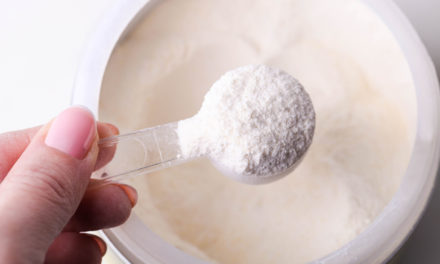People tend to measure health in terms of levels and numbers – cholesterol, blood sugar, blood pressure, body mass, etc. But, what they often fail to acknowledge is the condition of their gut. That’s right – their gut.
Elie Metchnikoff, the Nobel Prize winner whose research focused on how diseases are primarily related to toxic conditions in the gut, stated “ Death begins in the colon.” Many other scientists have concluded that how we think and feel is directly related to our digestive system, even referring to the gut as our “second brain.” Regarding overall health, it’s important to know 75% of your immune system resides in your gut. Equally interesting, your gastrointestinal system actually has more neurons than your spinal cord. Add to that the fact your stomach contains trillions of bacteria needed for body function, and you can see why it makes sense to pay close attention to your gut.
Symptoms such as gas, bloating, heartburn, diarrhea, constipation, nausea, and even bad breath can signify that something is not working properly.

Elimination and Reintroduction of foods is a helpful method for identifying food allergies or sensitives that may be causing GI distress. Be sure to drink plenty of water – half your body weight in ounces per day — and get regular exercise to assist digestion and elimination. Do your best to reduce stress, since it can cause dysfunction of the nerves in the gut wall. Lack of sleep can disrupt stomach flora, so be sure to get plenty of zzzzs.
In addition, there are some simple nutritional supplementation strategies that can support digestive health:
• If you do not have a chronic digestive disorder, a periodic cleanse & detox program can be helpful to allow your body to naturally sweep away unwanted waste and toxins in the gut. The cleanse program you choose should focus on more than just the colon, so you can achieve a more complete, holistic detoxification outcome. The end result — a healthy digestive system — can lead to proper metabolism and weight regulation.*
• Over time, undigested food is what bad bacteria and yeast will prey on, causing bloating, nausea and a lethargic feeling. Digestive Enzymes are excellent to help you digest your food more completely. Taken before a meal, they efficiently break down food so it does not get left behind in your digestive tract.*
• A daily dose of probiotics will help support your body’s immunity and resiliency – remember most of your immune system is found in your gut. A probiotic assists by keeping a healthy balance of microbial flora, and can help readjust flora that goes out of balance. As such, a probiotic can help with occasional indigestion, irregularity and diarrhea. If your stomach has properly balanced flora, the nutrients you take in on a daily basis will be better absorbed and used by your body. A good probiotic product also contains a prebiotic. Think of probiotics as fertilizer for good bacteria in your gut. The probiotic introduces the friendly bacteria into your system, while the prebiotic helps give that bacteria helpful nourishment to do their job. TIP: If you must take antibiotics, know that they can disrupt good flora in the stomach. A probiotic can help maintain the right balance of bacteria.*
• Since the gut tends to become inflamed due to stress or dietary abuse, Omega-3 Essential Fatty Acids can help the stomach lining stay strong and resilient. Omegas found in fish oil are known for their ability to address inflammation in the body.*
• Magnesium is a mineral important for gut health. A deficiency of this nutrient can cause constipation, which leads to slow bowel emptying and malabsorption of foods. Magnesium also facilitates proper sleep and immune function, both of which are important when you are trying to sustain good gut flora.* Calcium is an essential component in the production of enzymes and hormones that regulate digestion.* Plus, ongoing research shows Calcium may aid the colonization of friendly bacteria in the gut.* Many people are deficient in Magnesium and Calcium, due to depleted soils, and softened water supplies which reduce mineral content.
• The acronym for the Standard American Diet is SAD – what a perfect fit. The American diets does tend to be sad, woefully lacking the recommended 7 to 11 servings of fruits and vegetables per day. An overall vitamin/mineral multi can further support a healthy gastrointestinal system, by filling in the “7 to 11 gap.” Be sure to choose a multi that offers high antioxidant value and plenty of immune boosting nutrients – so important for sustaining a friendly gut environment.
• People needing extra digestive support should consider using a supplement with glutamine. Glutamine is an amino acid which directly supports and nourishes the health of the intestines.* It aids in the integrity of cells lining the gut.

Eniva provides a high quality line of nutritional supplements ideal for gut health, including:
• Eniva Whole Body Detox & Cleanse Kit
• Eniva Probiotic
• Eniva Digestive Enzymes
• Eniva Omega 3 EFA Fish Oil EFACOR
• Eniva CalMag (Calcium Magnesium)
• Eniva VIBE Multi (vitamins/minerals)
• Eniva BioChlor Chlorophyll, with l-glutamine.
*This statement has not been evaluated by the Food and Drug Administration. This product is not intended to diagnose, treat, cure, or prevent any disease. Any research referred to in this article is not meant to be interpreted as research results involving specific Eniva products.
At Eniva, we believe each human body was designed to be healthy. It was designed to be energetic, lean, agile, and resilient towards healing. You were created to live an abundant, healthy and vibrant life. Eniva is proud to create and manufacture pure liquid nutraceuticals with no artificial preservatives. Our liquid supplements are natural solutions to help you feel and look your best.





